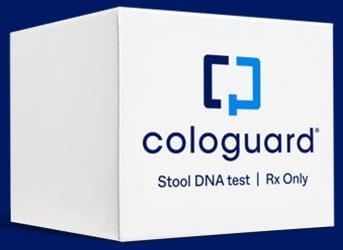Watch videos to learn more about the Cologuard® test and colorectal cancer (CRC) screening
Hear from an expert panel about how the Cologuard Plus test can help elevate your screening approach. They’ll discuss the latest information on performance, patient outcomes, and more.
All panelists are paid speakers, presenting on behalf of Exact Sciences. Views, opinions, and information provided during this presentation are based on the speakers’ own clinical practice and experience and are not clinical, diagnostic, or treatment advice for any particular event. Exact Sciences does not recommend or endorse any particular course of treatment or medical choice.
The Value of Screening: Preventing CRC in Black Americans
Hear from Dr Travelle Ellis, MD, PhD, who is the Senior Medical Director at Exact Sciences. She'll discuss the current CRC screening landscape and the disparities that Black Americans face, as well as Exact Science's commitment to addressing these disparities and health equity overall.
All panelists are paid speakers, presenting on behalf of Exact Sciences. Views, opinions, and information provided during this presentation are based on the speakers’ own clinical practice and experience and are not clinical, diagnostic, or treatment advice for any particular event. Exact Sciences does not recommend or endorse any particular course of treatment or medical choice.
The Cologuard journey
Hear the game-changing story of developing the Cologuard test, the first and only method using mt-sDNA technology to screen for CRC and precancerous polyps. From having one of the largest clinical trials for a screening tool up to that point, to getting FDA approval and Medicare coverage on the same day, to being included in United States Preventive Services Task Force (USPSTF) and American Cancer Society (ACS) guidance, Exact Sciences and the Cologuard test have brought innovation to CRC screening. Since 2014, healthcare providers have prescribed millions of Cologuard tests, leading to better outcomes for >15 million patients.1-4*†
Dr Fenton shares his story of CRC screening
Dr Fenton is a primary care physician at Beth Israel Deaconess Medical Center in Salem, NH. After becoming eligible for CRC screening, he used the Cologuard test and received a positive result. He followed the proper steps, was treated for stage I CRC, and is now cancer free.
- English (US)
- English (US)
- Español (Spanish)
- العربية (Arabic)
- Français (French)
- Kreyòl Ayisyen (Haitian Creole)
- हिंदी (Hindi)
- 한국어 (Korean)
- Português (Portuguese)
- Русский (Russian)
- Tagalog/Filipino
- 粵語 (Cantonese Chinese)
- Tiếng Việt (Vietnamese)
- 国语 (Mandarin Chinese)
Exact Sciences
Laboratories virtual lab tour
Take a virtual tour for a sneak peek inside Exact Sciences Laboratories in Madison, WI. Learn how this innovative and customer-focused facility delivers CRC screening results for eligible patients nationwide. Discover that no matter how far apart we are, patients are still within reach.

Cologuard resources
Find resources for you, your practice, and your eligible patients.
- The USPSTF found adequate evidence that screening eligible patients aged 45 to 49 years provides a moderate benefit in reducing CRC deaths and increasing life-years gained. USPSTF-recommended screening modalities include stool-based tests or direct visualization tests.3
- The ACS makes a qualified recommendation for screening in eligible patients aged 45 to 49 years, indicating clear evidence of benefit of screening but less certainty about the balance of benefits, harms, and patient preferences. ACS-recommended screening modalities include high-sensitivity stool-based tests or structural (visual) examinations.4
